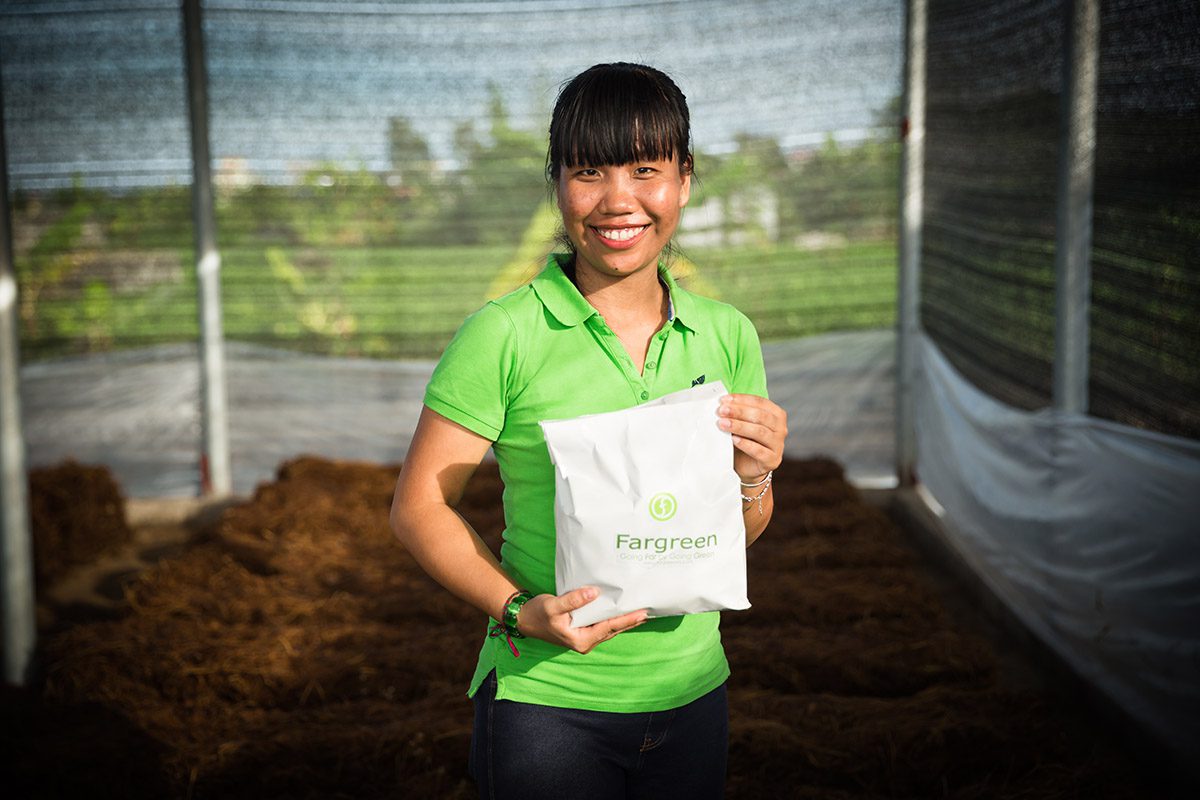The open burning of rice straw is an age-old problem. Commonly practiced by farmers in Egypt and Asia as a cheap way to clear the fields for the next season, it emits a smoky haze of fine particulate matter and greenhouse gases such as carbon dioxide, methane and nitrous oxide.
In Vietnam, more than 20 million tons of the straw are burned through four months of the year. Now a homegrown startup is tackling the issue by giving rice farmers an economic incentive to stop the burning by using their straw as a substrate to grow organic mushrooms instead.
“People were looking for a way to increase their income, but they weren’t looking for a solution that incorporated the environment,” says Trang Tran, a 28-year-old Vietnamese social entrepreneur, of her inspiration to co-found Fargreen in 2013.
Tran, Fargreen’s CEO, is familiar with the pollution problem: She grew up amid the straw-burning smoke in Hanoi, Vietnam’s capital city.
“The smoke also causes a lot of traffic accidents because the farmers bring the straw to burn near the highway, so it blocks the view,” says Tran, a 2014 MBA graduate of Colorado State University in Fort Collins. “And a lot of people travel by motorbike so it gets in your eyes and it’s really dangerous.”
The smoke also contributes to respiratory problems, she adds.
In the summer of 2013, Tran and her friend and co-founder, biologist Thuy Dao, conducted a small pilot using rice straw as a growing substrate for mushrooms.
Spurred on after winning a handful of global business competitions in 2014—including $215,000 asrunner-up of the PostCode Lottery Green Challenge—Fargreen launched its first growing season last summer (which wrapped up earlier this month). Using professional mushroom growers from Hanoi’s agriculture institute as instructors, it trained 10 rice farmers from the Hai Duong province east of Hanoi how to grow organic oyster, white button and straw mushrooms using rice straw as a substrate. The training took three to four months, and the growing season lasted another four.
How did the inaugural season go? Tran reports that the farmers diverted one ton of straw during their first foray. And while the company is still working on how to optimize yield, she says they produced up to 200 kg of one type of mushrooms by season’s end. Fargreen estimates that the farmers generated $2 of extra income a day onto their current earnings of less than $5 a day for an hour or two of daily added labor.
Source: Pollution Problem Solved with Mushrooms – Modern Farmer

